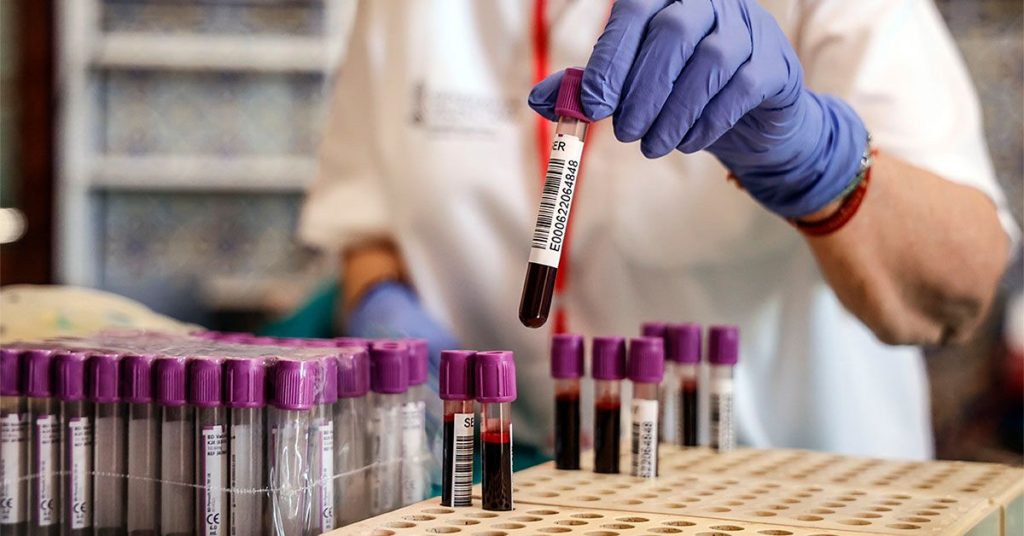Researchers at Lund University have developed a new blood test called PrecivityAD2 that is about 90% accurate in identifying Alzheimer’s disease in individuals experiencing cognitive symptoms. Early diagnosis of Alzheimer’s disease is crucial as new treatments are being developed that may slow the progression of the disease, as well as improving patient outcomes. The test works by measuring a combination of two ratios within a blood sample, specifically looking for tau and amyloid-beta proteins which are pathological hallmarks of Alzheimer’s disease. This blood test offers a less invasive, more cost-effective, and accessible alternative to current methods such as cerebrospinal fluid tests and amyloid PET scans.
A clinical study was conducted involving 1,200 participants with an average age of 74 years old, of whom 23% had subjective cognitive decline, 33% had dementia, and 44% had mild cognitive impairment. Results showed that 50% of the participants had Alzheimer’s disease pathology through primary and secondary care testing. The study found that the PrecivityAD2 blood test was about 90% accurate in identifying Alzheimer’s disease in those previously seen at a memory clinic and 61% accurate in those seen by primary care physicians. This underscores the potential for improvement in the diagnosis of Alzheimer’s disease with the adoption of this blood test in healthcare settings, especially in primary care.
Researchers and experts view the high diagnostic accuracy and robustness of the blood biomarkers in identifying Alzheimer’s disease across primary and secondary care settings as promising. This could potentially lead to earlier diagnosis and patient management, providing timely access to treatment. Future steps in testing the PrecivityAD2 blood test include validating the blood biomarkers in diverse international cohorts and developing fully automated immunoassays for easier implementation in clinical labs. There is also a need for further studies to compare the diagnostic performance of different metrics and identifying specific patient subgroups where certain biomarkers may offer greater diagnostic accuracy or utility.
Neuropsychologist Karen D. Sullivan emphasizes the importance of not solely relying on lab tests for diagnosing Alzheimer’s disease. She highlights the complexity of brain health and the need for a person-centered assessment model that considers multiple factors, not just biomarkers. Sullivan warns against reducing brain health diagnosis to lab tests alone, which could lead to false positive dementia diagnoses and unnecessary treatments with potential risks. She advocates for a comprehensive approach that includes detailed clinical interviews and human-to-human assessments to ensure accurate diagnosis and appropriate treatment.
Overall, the development of the PrecivityAD2 blood test for the early diagnosis of Alzheimer’s disease shows promise in improving detection and management of the condition. With its high accuracy rate in identifying Alzheimer’s disease in individuals with cognitive symptoms, this blood test offers a less invasive and more accessible alternative to current diagnostic methods. Moving forward, further research and validation of the blood biomarkers are needed to ensure the effectiveness and reliability of this test in diverse patient populations. It is essential to consider the complexities of brain health and adopt a person-centered approach to diagnosing Alzheimer’s disease, incorporating various factors beyond just biomarkers.













